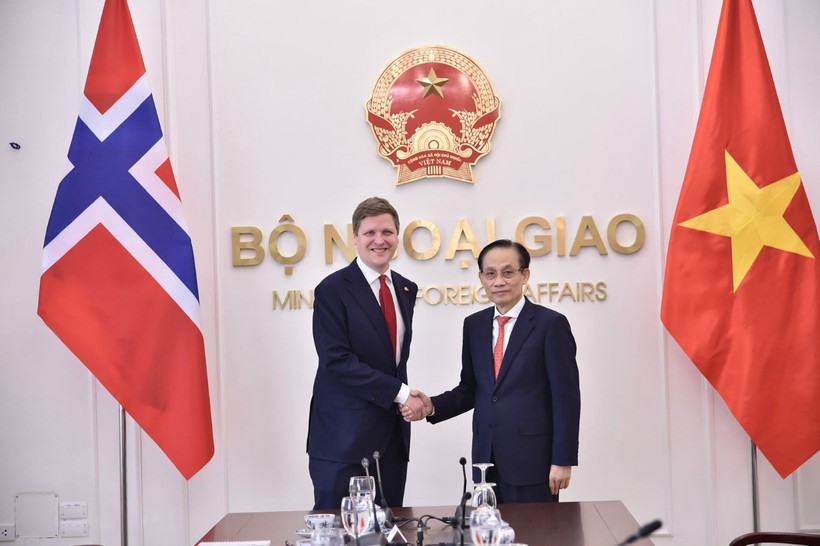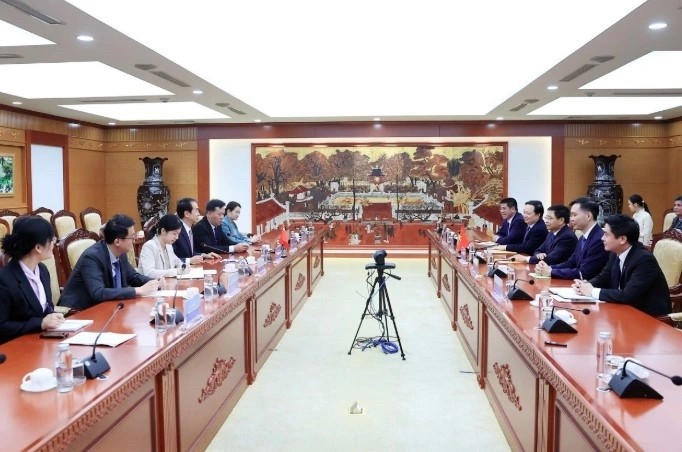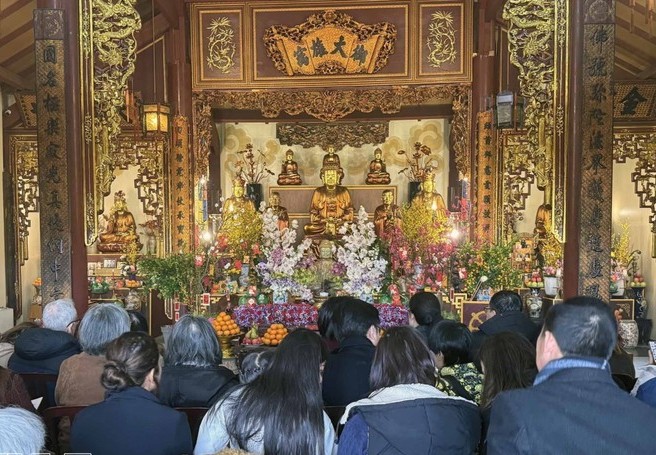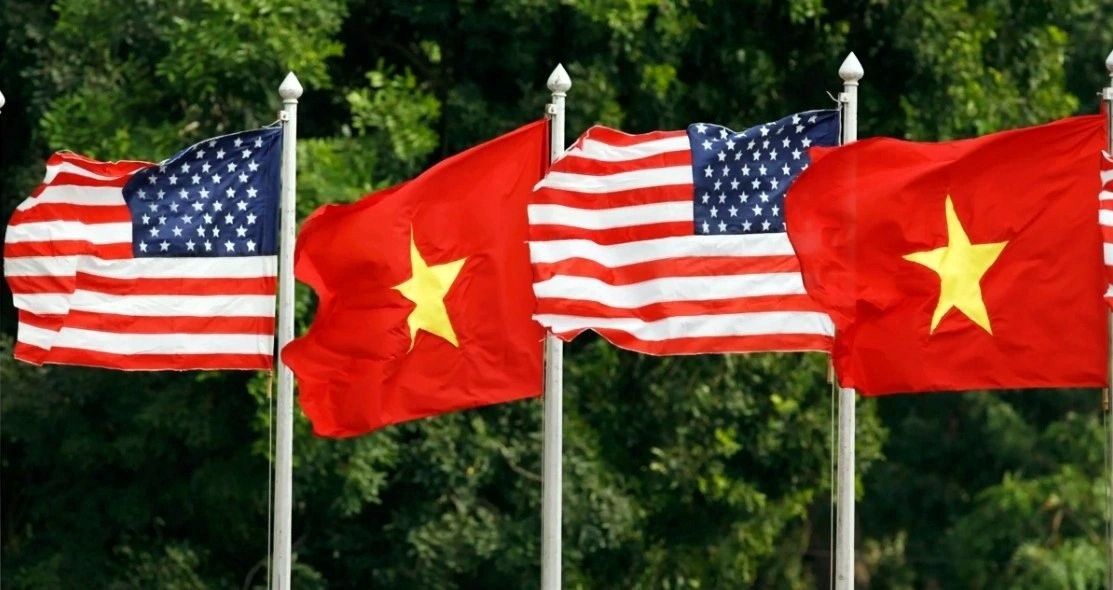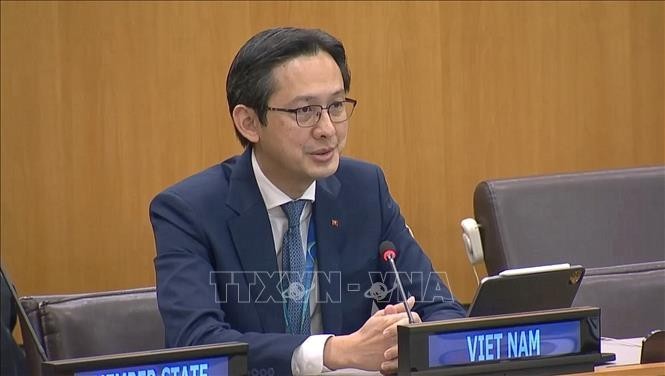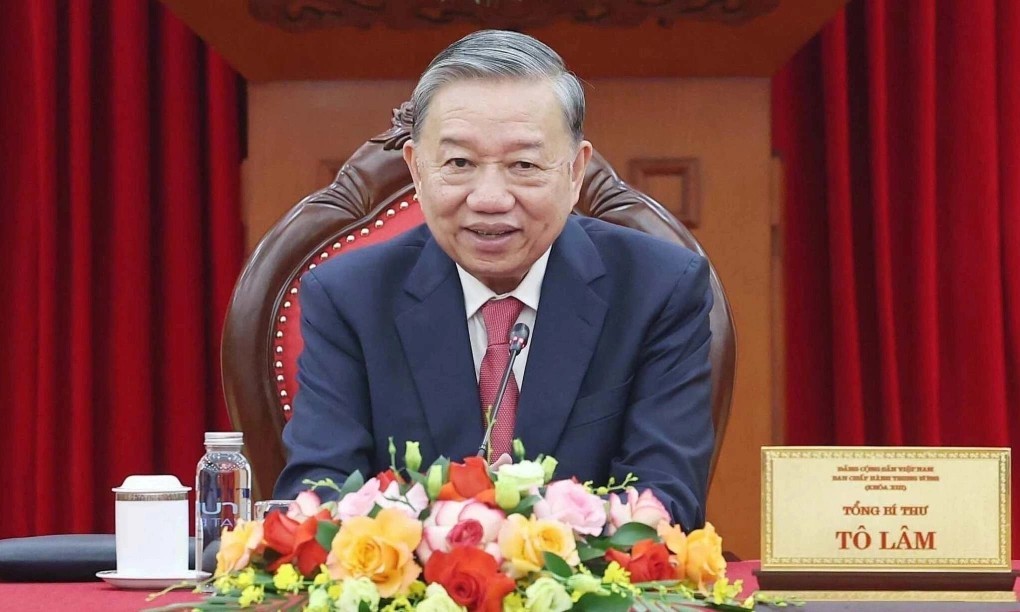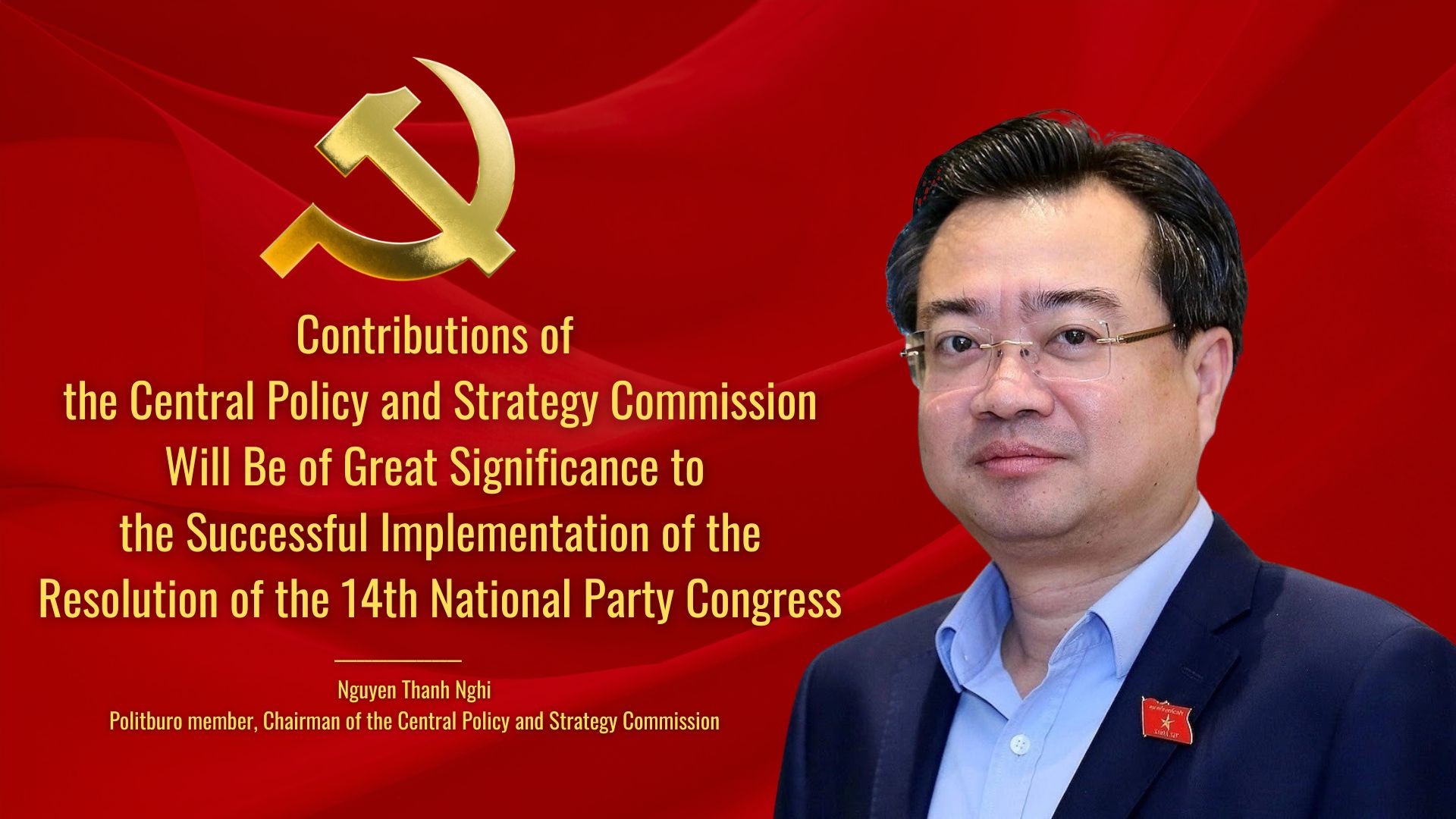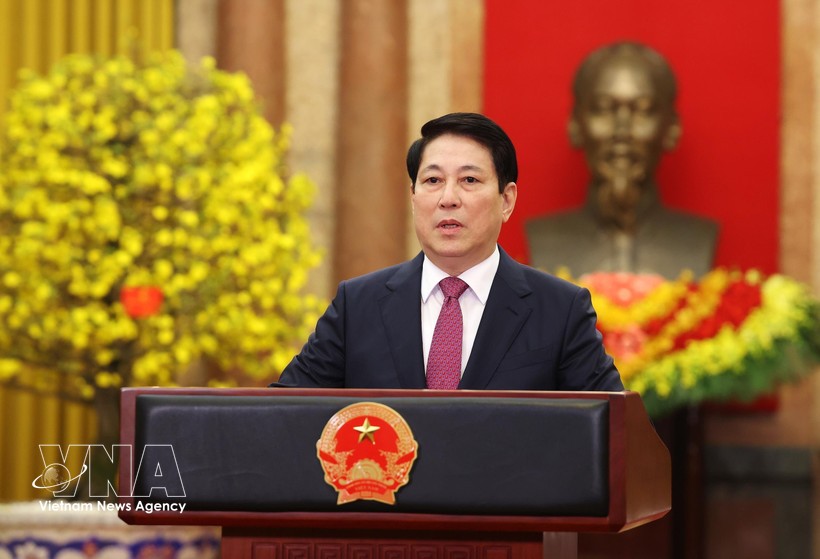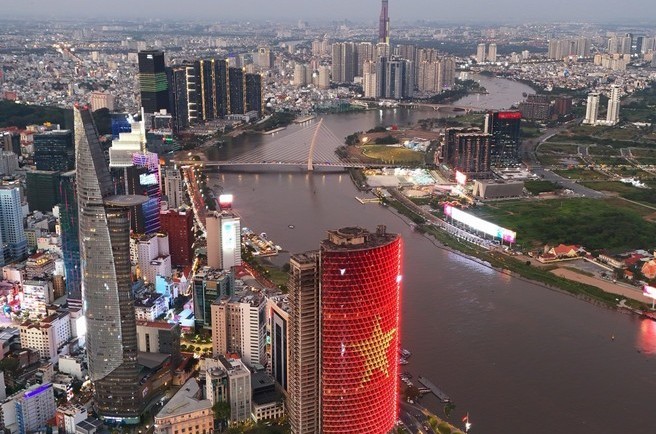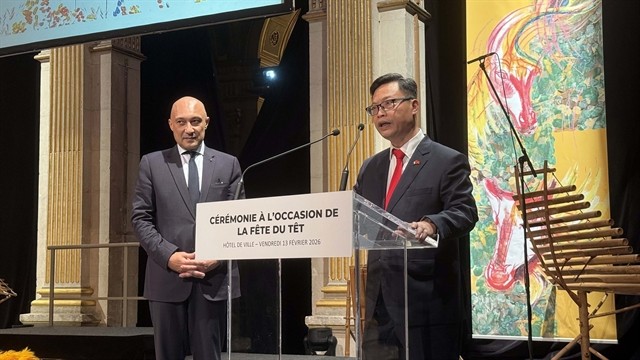High-level talks in Hanoi reinforce Vietnam–Czech strategic partnership
Vietnamese National Assembly Chairman Tran Thanh Man and visiting Czech Senate President Milos Vystrcil held talks in Hanoi on November 21, outlining future cooperation orientations between the two countries and their parliaments.
Chairman Man warmly welcomed Senate President Vystrcil’s visit which coincides with the 75th anniversary of diplomatic relations between the two countries (1950–2025) and the first year of implementing the Vietnam–Czech Strategic Partnership framework. He noted that the visit further strengthens the traditional friendship between Vietnam and the Czech Republic in general and promotes parliamentary cooperation in particular.
He expressed gratitude to Senate President Vystrcil for presenting, on behalf of the Czech Government, financial support equivalent to VND3.5 billion to help Vietnamese people recover from recent storms and floods.
Chairman Man affirmed that, despite global upheavals, Vietnam–Czech relations have been steadily nurtured and positively developed by successive generations of leaders and citizens. He thanked the Czech Republic for its invaluable support given to Vietnam’s struggle for independence and national reunification, as well as its ongoing development efforts.
Vietnam highly values the promotion of traditional friendship and multifaceted cooperation with the Czech Republic, Vietnam’s first strategic partner in Central and Eastern Europe, he told his guest.
He recalled that both countries have exchanged numerous high-level visits, notably Prime Minister Pham Minh Chinh’s official visit to the Czech Republic in January 2025 and Czech Prime Minister Petr Fiala’s visit to Vietnam in April 2023.
Senate President Vystrcil spoke highly of Vietnam’s remarkable socio-economic development and international integration achievements. He also expressed appreciation to the Vietnamese government for unilaterally granting visa exemptions to Czech citizens.
The senior Czech legislator highlighted the success of business matchmaking activities between Czech and Vietnamese enterprises during his visit, affirming the Czech Republic’s desire to further deepen cooperation across all sectors, according to VOV.
 |
| Vietnamese National Assembly Chairman Tran Thanh Man (R) and visiting Czech Senate President Milos Vystrcil ahead of their talks in Hanoi on November 21. |
He also stated that the Czech Parliament supports and will continue to encourage other EU member states to promptly ratify the EU – Vietnam Investment Protection Agreement (EVIPA).
Both host and guest updated each other on domestic developments, appreciated positive progress in bilateral relations, and recognised effective parliamentary cooperation as reflected in leadership visits and exchanges.
They agreed to continue strengthening high-level exchanges and delegations across Party, State, Government, parliamentary, and public channels to enhance political trust and mutual understanding, laying the foundation for expanding cooperation in various fields.
emphasizing the importance of parliamentary cooperation within the broader bilateral relationship, both sides agreed to strengthen exchanges among senior parliamentary leaders, specialised committees, friendship groups, women parliamentarians, and youth parliamentarians to share information and experience in parliamentary work, and to cooperate in monitoring and supporting governments in effectively implementing bilateral agreements.
Both sides identified trade and investment cooperation as a key pillar of bilateral relations, welcoming joint projects in Vietnam, such as the Škoda automobile plant and the Mong Duong 2 thermal power plant in Quang Ninh province.
They agreed to soon develop an action plan to implement the Vietnam–Czech Strategic Partnership framework for 2025–2026, further deepening cooperation in trade and investment, science and technology, education and training, healthcare, culture, labour, tourism, renewable energy, nuclear energy, defense and security, digital transformation, environmental protection, as well as locality-to-locality cooperation.
They also encouraged airlines from both countries to explore direct flights to promote tourism, people-to-people exchanges, and bilateral economic ties.
On regional and international issues of mutual interest, both sides agreed to continue close coordination and support each other at multilateral forums, especially inter-parliamentary regional and international platforms such as IPU and ASEP, contributing to peace, stability, cooperation, and development regionally and globally.
Chairman Man requested that Czech authorities continue facilitating the integration and well-being of the Vietnamese community in the Czech Republic, emphasizing that the community serves as a vital bridge of friendship between the two countries and contributes positively to Vietnam–Czech and Vietnam–EU relations.
Senate President Vystrcil affirmed that the Czech government and people consistently support and cherish the Vietnamese community in the Czech Republic.
On this occasion, Senate President Vystrcil invited Chairman Man to pay an official visit to the Czech Republic at a suitable time, and the invitation was accepted with pleasure.
Czech Senate President underscores strategic education links with Vietnam
President of the Senate of the Czech Parliament Milos Vystrcil on November 21 reaffirmed that the Czech Republic remains open to international students, including those from Vietnam, stressing emerging opportunities for cooperation under the Vietnam–Czech Strategic Partnership.
Vystrcil made the statement during a visit to the Diplomatic Academy of Vietnam (DAV), where he also witnessed the signing of a Memorandum of Understanding on cooperation between the two countries’ diplomatic academies.
Dr. Nguyen Thi Thin, Deputy Director of the DAV, said the academy, now approaching its 70th year, stands as Vietnam’s leading institution for diplomatic training, professional development and research. She underlined that international collaboration in education and research forms a key pillar in DAV’s ambition to become a premier regional and international centre for diplomatic studies.
According to Thin, the MoU represents an important milestone that will boost people-to-people exchanges and strengthen cooperation in education and diplomacy between Vietnam and the Czech Republic. She added that the agreement carries special significance given the Czech Republic’s extensive experience in education, science and technology, engineering and environmental technology, having trained more than 30,000 Vietnamese students over the decades.
The agreement sets out a framework for the two academies to exchange modern teaching methods and research practices, and opens new opportunities for student, lecturer and researcher exchanges through joint training programs, workshops and seminars.
Thin expressed her hope that the Czech Senate President will continue to support the swift implementation of the agreement through concrete actions that will advance cooperation in education, science and technology, and further reinforce the Vietnam–Czech Strategic Partnership, reported VNA.
 |
| President of the Senate of the Czech Parliament Milos Vystrcil speaks at the event. (Photo: VNA) |
Dana Kovarikova, Director of the Czech Diplomatic Academy, described the MoU as a strategic step at a time of rapid global change requiring closer international cooperation, especially in diplomacy. She said the expansion of educational collaboration is a well-founded decision, building on the long-standing tradition of the Czech Republic training hundreds of thousands of Vietnamese students, who now serve as cultural bridges between the two nations.
Speaking with DAV students after the signing ceremony, Vystrcil noted that although the two countries are geographically distant, they are united by shared aspirations for peace, development and prosperity. He also highlighted the important role played by the Vietnamese community in the Czech Republic, which continues to strengthen bilateral ties.
35 years of EU–Vietnam relations: A strategic shift built on trust
In an interview marking the 35th anniversary of diplomatic relations between the European Union and Vietnam, EU Ambassador to Vietnam Julien Guerrier emphasized that the partnership is built on “trust, shared values, and a strong commitment to progress.”
His comments reflect a three-decade trajectory that began with humanitarian efforts in the early 1990s - including the resettlement of over 100,000 Vietnamese boat people - and has evolved into one of the EU’s most comprehensive and strategically significant partnerships in Asia today.
Ambassador Guerrier noted that the EU seeks to “cooperate with Vietnam in a more ambitious future, bringing tangible benefits to both peoples and contributing to global peace, stability, and prosperity.”
This 35-year journey mirrors Vietnam’s transformation, the EU’s strategic pivot to the Indo-Pacific, and the political and economic trust that now underpins a relationship ready for its next leap.
EVFTA: The economic foundation of trust
Over the past decade, the EU–Vietnam Free Trade Agreement (EVFTA) has become the cornerstone of bilateral economic cooperation. Coming into force amid the COVID-19 global slowdown, the agreement has helped bilateral trade surge by about 40% to €65 billion. EU FDI in Vietnam also grew from €22 billion to more than €30 billion, solidifying Vietnam as the EU’s largest trading partner in ASEAN and its 16th largest globally.
Ambassador Guerrier called EVFTA “a core legal framework” that boosts confidence in Vietnam’s market stability and transparency. It has encouraged reforms in procedures, licensing, and regulatory predictability - all of which are priorities for European businesses.
Despite years of trade surpluses favoring Vietnam, the EU has chosen not to impose balancing tariffs. Instead, a high-level working group was established to monitor market access and ensure the full, fair, and predictable implementation of the EVFTA.
The energy transition: A new frontier for cooperation
On climate, the EU and Vietnam share the goal of net-zero emissions by 2050. Guerrier revealed that the EU is mobilizing unprecedented resources for Vietnam: €142 million in budget support for the green energy transition, more than €100 million in grants for climate adaptation, and up to €4 billion in preferential loans through blended finance mechanisms from European development banks.
Key projects like the Bac Ai pumped storage hydropower plant, Tri An hydropower, and nearshore wind in Tra Vinh demonstrate the EU’s deep commitment to helping Vietnam restructure its energy sector, cited VNN.
 |
| Julien Guerrier – EU Ambassador to Vietnam. |
This is essential to ensure Vietnamese exports meet the EU’s tightening environmental standards in the years ahead.
Beyond EVFTA and the Just Energy Transition Partnership (JETP), Ambassador Guerrier identified the Global Gateway strategy as “a new pillar” of EU–Vietnam cooperation for the next decade. This initiative will focus on investment in clean energy infrastructure, transport (especially rail and high-speed lines), and digital infrastructure, including 5G and advanced tech.
This structural capital investment lays the groundwork for Vietnam’s strategic modernization - a prerequisite for achieving its goal of becoming a developed country by 2045.
A multifaceted partnership
Despite geographical distance, the EU has direct interests in the South China Sea, through which 40% of its imports and 25% of its exports pass. Guerrier reaffirmed the EU’s strong support for a rules-based international order and UNCLOS, and praised Vietnam’s role as a stable regional partner.
The 2019 Framework Participation Agreement - the EU’s first with an ASEAN country - marked a major step in defense cooperation. The EU now provides training to Vietnamese peacekeepers, while Vietnam sends officers to EU missions. This reflects the maturity of the bilateral relationship.
Beyond trade and energy, EU assistance reaches deeper levels of Vietnam’s development: institutions, legal reform, governance, and human capital. Currently, over €300 million in EU grants are being deployed, with an additional €160 million planned by 2027 to support legal reform, governance capacity, and an inclusive green transition.
Though less visible, these forms of aid have lasting impact - they build the foundation for sustainable growth in an increasingly open economy.
In education and research, Erasmus and Horizon Europe programs connect students, experts, and scientists, shifting EU–Vietnam ties from government-to-government to people-to-people. This is a vital step toward a resilient, long-term strategic relationship.
The yellow card on IUU fishing: A test of enforcement
Ambassador Guerrier acknowledged Vietnam’s “overhaul” of its legal framework to meet international standards against illegal, unreported, and unregulated (IUU) fishing, but stressed that enforcement remains the key challenge. This includes managing vessels over 15 meters, improving vessel monitoring systems, and strengthening data and penalties.
The Prime Minister’s directive requiring coastal provinces and ministries to submit regular reports to Brussels has been well received by the EU.
Resolving the yellow card is not just a compliance issue - it is also a test of Vietnam’s ability to deliver on commitments under next-generation trade agreements.
Toward a comprehensive strategic partnership
The most anticipated milestone in 2025 is the elevation of EU–Vietnam ties to a Comprehensive Strategic Partnership. Guerrier described this as a “future-proof framework” - deep enough to remain relevant for decades. Once in place, new priority areas like semiconductors, high-tech innovation, and strategic raw materials will come to the fore.
The 35-year journey of EU–Vietnam cooperation is one of maturity: from humanitarian aid, to development, to robust trade and defense collaboration - and now, toward a strategic partnership.
It is a path built on trust, converging interests, and shared aspirations.
As Ambassador Guerrier noted, this anniversary is not just a moment to reflect on the past, but a point to define a shared vision for the future - a rule-based, reform-driven, sustainable, and resilient partnership for an unpredictable but opportunity-rich world.
Vietnam, Russia cooperate in marine, continental shelf research
A seminar presenting and assessing the preliminary results of the second Vietnam-Russia joint survey on Vietnam’s continental shelf, conducted using research vessel Akademik M.A. Lavrentyev, was held in Hanoi on November 21.
From October 20 to November 21, the ship, operated by the Far Eastern Branch of the Russian Academy of Sciences (FEB RAS), coordinated with the Vietnam Academy of Science and Technology (VAST) to carry out the survey.
The month-long mission brought together more than 30 Vietnamese and Russian scientists and technicians working continuously at sea. Samples and data collected during the survey will be analysed at specialised laboratories of the Institute of Earth Sciences (IES) under the VAST and the Pacific Oceanological Institute (POI) under the FEB RAS, VNA reported.
 |
| Sediment sampling activities on Vietnam’s continental shelf conducted by the survey team. (Photo released by VNA). |
At the seminar, co-organized by the VAST and FEB RAS, scientists reported and discussed initial findings. Despite challenging weather conditions, the survey team completed a substantial workload.
The mission collected a dense set of deep-sea sediment samples from Vietnam’s continental shelf, enriching the field database for this area. Geological samples, along with geophysical and oceanographic data, will provide important input for comprehensive studies on the natural conditions, resource potential, and geological evolution of the continental shelf.
IES Director Dr. Nguyen Xuan Anh said the seminar also created a forum for scientists to explore research potential, future cooperation directions, and upcoming survey plans.
He noted that in the time to come, the IES will continue to organize joint surveys with foreign partners, share data, exchange experts, and develop bilateral and multilateral research programs.
 | Vietnam News Today (Nov. 18): Kuwait eyes expanded cooperation with Vietnam; Deputy PM asks for close coordination to ensure success for Vietnam – China meeting; ... |
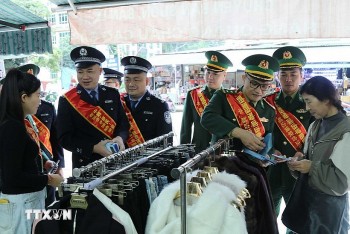 | Vietnam News Today (Nov. 19): Vietnam, China Border Forces Maintain Effective Cooperation Mechanism Vietnam News Today (Nov. 19): Party chief receives CEO of Denmark's A.P. Moller – Maersk; Vietnam–Kuwait relations reach strategic turning point, says PM Pham Minh ... |


